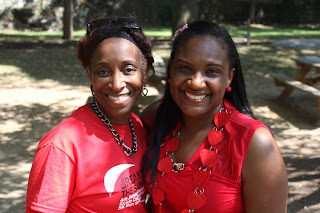COMMENT
The far-flung reach of sickle-cell disease
DELAWARE VOICE
DR. NINA ANDERSON
Sickle-cell disease is a lethal blood disorder that is oftentimes invisible and misunderstood. This debilitating and painful disorder impacts the lives of people who suf- fer from this condition.
Sickle cell most frequently occurs in people who have descended from trop- ical and sub-tropical regions of the world where malaria is prevalent such as, Africa, South and Central America, the Caribbean, the Mediterranean, Asia and the Middle East.
In fact, sickle cell is one of the world’s most common inherited blood disorders. In 1910, a western physician was the first to note a patient with “sickle shaped” red blood cells. Histori- cally, access to quality specialty care and research tends to lag far behind other chronic diseases and blood dis- orders. Despite the needs to improve health equity, the life expectancy for those living with the disease has im- proved over the last two decades. Yet, the availability of specialty centers for children is four times greater than for adults. In spite of societal burdens for those living with a progressive chronic disease, a person’s quality of life should be considered of high importance. This would include indicators to improve one’s overall (physical, emotional and spiritual) health, educational, and em- ployment opportunities.
DR. NINA ANDERSON
Sickle-cell disease is a lethal blood disorder that is oftentimes invisible and misunderstood. This debilitating and painful disorder impacts the lives of people who suf- fer from this condition.
Sickle cell most frequently occurs in people who have descended from trop- ical and sub-tropical regions of the world where malaria is prevalent such as, Africa, South and Central America, the Caribbean, the Mediterranean, Asia and the Middle East.
In fact, sickle cell is one of the world’s most common inherited blood disorders. In 1910, a western physician was the first to note a patient with “sickle shaped” red blood cells. Histori- cally, access to quality specialty care and research tends to lag far behind other chronic diseases and blood dis- orders. Despite the needs to improve health equity, the life expectancy for those living with the disease has im- proved over the last two decades. Yet, the availability of specialty centers for children is four times greater than for adults. In spite of societal burdens for those living with a progressive chronic disease, a person’s quality of life should be considered of high importance. This would include indicators to improve one’s overall (physical, emotional and spiritual) health, educational, and em- ployment opportunities.
The availability of resources for research and a cure is recognized, but the improvement of a person’s health- care experience in a broader context is not often accepted as a priority.
Other indicators of a population’s health would include access to: nutri- tious foods, parks for walking and bike
Other indicators of a population’s health would include access to: nutri- tious foods, parks for walking and bike
paths, policies that lower income dis- parities, affordable housing, high-qual- ity public education, vocational training and gainful employment for persons with disabilities, clean water, culturally competent healthcare providers, qual- ity mental health care and etc. In other words, why not put more resources into initiatives that build healthy patients, families, communities and cities for all which would ultimately benefit those living with sickle cell?
As National Sickle Cell Awareness Month comes to an end, Tova Community Health wants to thank all those who came out to support raising Sickle Cell Awareness in Delaware. On Sept. 5, Tova Community Health held a fun- filled 5K & 1 Mile Walk/Run with over 500 participants at Brandywine Park in Wilmington. Generations of families, young and old, enjoyed a fantastic day in the park for an unspoken disease. Later in the evening, an awards show
As National Sickle Cell Awareness Month comes to an end, Tova Community Health wants to thank all those who came out to support raising Sickle Cell Awareness in Delaware. On Sept. 5, Tova Community Health held a fun- filled 5K & 1 Mile Walk/Run with over 500 participants at Brandywine Park in Wilmington. Generations of families, young and old, enjoyed a fantastic day in the park for an unspoken disease. Later in the evening, an awards show
was held at the Christina Cultural Arts Center to honor community leaders for their support and to recognize those living with complex chronic medical conditions.
Tova’s mission is to provide holistic comprehensive compassionate care and awareness to persons living with com- plex chronic diseases like sickle cell. Join us by volunteering, making a dona- tion, supporting our specialty center and outreach events held in the commu- nity. We are that much closer to, “Breaking the Sickle Cycle.” Again, thank you for your generosity and sup- port. If you would like more informa- tion, please visit our website at www.tovacommunityhealth.org.
Dr. Nina Anderson is the executive director of Tova Community Health and is an Affiliated Associate Professor at the University of Delaware.
Tova’s mission is to provide holistic comprehensive compassionate care and awareness to persons living with com- plex chronic diseases like sickle cell. Join us by volunteering, making a dona- tion, supporting our specialty center and outreach events held in the commu- nity. We are that much closer to, “Breaking the Sickle Cycle.” Again, thank you for your generosity and sup- port. If you would like more informa- tion, please visit our website at www.tovacommunityhealth.org.
Dr. Nina Anderson is the executive director of Tova Community Health and is an Affiliated Associate Professor at the University of Delaware.
 |
| Leslie & Dr. Nina |

September 25, 2015. The News Journal 09/25/2015. Copy Reduced from original to fit letter page






